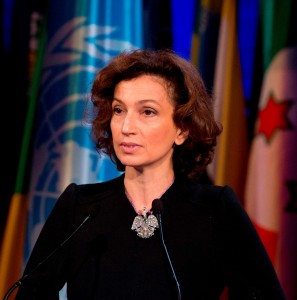Participants at the 2021 edition of the World Press Freedom Day (WPFD) celebrations, held in Windhoek, Namibia, from April 28 to May 3, 2021, have called on stakeholders around the world to commit to enabling an environment for freedom of expression and access to information, both online and offline.
The participants made this, and other recommendations in its Windhoek+30 Declaration released at the end of activities embarked upon to mark the 30th edition of the WPFD in Windhoek, the Namibian Capital. The theme was “Information as a Public Good – 30 years of the Windhoek Declaration”.
Specifically, they called on all governments to commit to creating a positive enabling environment for freedom of expression and access to information, online and offline, in line with international guarantees of these rights, including a free, independent and pluralistic media, through adopting appropriate legal measures in a transparent manner and following adequate public consultation, guaranteeing the exercise of journalism free of governmental interference whether formal or informal , promoting universal access to the Internet, and taking measures to reinforce the safety of journalists, including with a specific focus on women journalists.
They also asked governments to take effective steps to nurture a diversity of viable public, private and community media, and implement specific policies, along with relevant safeguards, to promote the production of independent, quality journalism, with the aim of ensuring people’s access to relevant, diverse and reliable information;
Saying that flows of funding from public sources to the media, including subsidies and advertising, should be allocated fairly and overseen in an independent, transparent and manner, they called on governments to also guarantee investment in journalism and jobs, with respect for gender equality and decent working conditions.
The Declaration called on government to mainstream media and information literacy into strategies and action plans in order to build the resilience of citizens to misinformation, disinformation and hate speech, and promote civic participation in democratic life as well as allocate adequate human, financial and technical resources, including as part of foreign assistance support, to ensure the proper implementation of the steps and measures outlined in the Declaration.
The participants also called on UNESCO and other intergovernmental organisations to reinforce cooperation with governments and civil society organisations in order to safeguard and enhance guarantees for the full exercise of the right to information and freedom of expression, both online and offline, with a particular focus on strengthening media freedom, diversity, and independence as well as media viability, transparency of digital platforms, and media and information literacy.
UNESCO and other intergovernmental organisations were also asked to encourage the development of joint funding instruments supported by a combination of States, multilateral institutions, private foundations and philanthropists to promote journalism as a public good.
The WPFD participants also called on technology companies to work to ensure transparency in relation to their human and automated systems which could impact user interaction with content, as well as their terms and conditions of service; provide robust notice and appeals opportunities to users, process complaints and redress requests from users in a fair manner, and take action whenever their terms and conditions of service are breached; and conduct transparent human rights risk assessments, including to identify threats to freedom of expression, access to information and privacy, take appropriate action to eliminate or mitigate those threats, and disclose the impact of those actions.
The technology companies were also asked to support information as a public good in various ways, for example through fair and inclusive partnership arrangements, which may include donations or other financial measures, and the protection of journalists who are the victims or at risk of online attacks.
The participants called on journalists, media outlets, civil society and academia to advocate with States and digital platforms, as part of their wider protection of freedom of expression and information as a public good, to recognise media viability as a development priority; undertake monitoring, advocacy, research, policy development, awareness raising, including among official actors, and the provision of expertise and support to address problems caused by measures taken by governments and digital platforms, including due to their lack of transparency, and increase their engagement in media and information literacy actions; and promote a more inclusive, pluralistic and sustainable media sector, including through measures that promote the involvement of young people, women and marginalised groups in the media.
They called on all the stakeholders: Governments, UNESCO and other intergovernmental organisations; technology companies; as well as journalists, media outlets, civil society and academia to work together to ensure the effective realisation of the steps and measures outlined in the Declaration.






